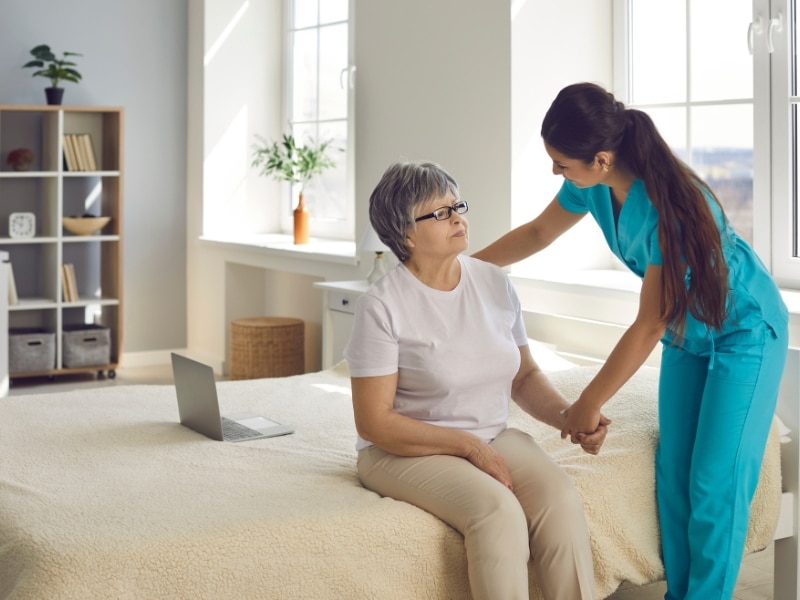
Self-care is a vital aspect of daily living, helping individuals maintain independence and enhance their quality of life. However, for those with disabilities, performing self-care activities often requires extra support. Personalised support is key in making these tasks more manageable while prioritising dignity, safety, and comfort. This article will explore why personalised support is essential for assistance with self-care activities and its impact on the overall well-being of individuals with disabilities.
What is personalised support in self-care activities?
Personalised support offers tailored assistance to meet an individual’s unique needs and preferences. Unlike standard approaches, it recognises varying abilities, challenges, and goals. In self-care, this support helps with tasks like bathing, dressing, and mobility, considering the person’s capabilities. It ensures care, respects their routines, empowers greater independence and dignity, and supports them in managing daily activities in a way that suits their lifestyle.
How does assistance with self-care activities improve daily living?
When individuals with disabilities receive assistance with self-care activities, it can significantly improve their ability to manage daily life. The key improvements include:
- Increased independence: With the proper support, individuals can perform tasks they might struggle with on their own, fostering a sense of autonomy.
- Better physical health: Regular support with hygiene and grooming helps maintain overall health and reduces the risk of infections or other health issues.
- Enhanced emotional well-being: Gaining independence in daily routines can lead to improved confidence and reduced feelings of frustration or dependence.
- Enhanced social interactions: When individuals are able to look after their care, they feel more confident in social situations and are better able to participate in community activities.
- Encouragement of routine: Establishing a stable routine can provide a sense of security and structure, which is particularly important for individuals with disabilities.
What are the benefits of one-on-one support for managing daily routines?
One-on-one support is vital for individuals who need assistance with daily routines. The benefits include:
- Tailored care: Support can be adjusted to suit an individual’s preferences, ensuring that they are comfortable with their personalised care plans.
- Increased focus: With one-on-one support, individuals receive the full attention of their caregiver, reducing distractions and ensuring that tasks are completed efficiently.
- Emotional support: Personalised care provides not only practical assistance but also emotional support, helping individuals feel valued and understood.
- Flexibility in scheduling: One-on-one support allows for flexibility, as the caregiver can adjust to the individual’s changing needs, ensuring they receive the right level of assistance at the right time.
- Strengthened caregiver relationships: Consistent one-on-one care helps build trust and rapport between the caregiver and the individual, enhancing the quality of care.

How can personalised support help individuals overcome self-care challenges?
Living with a disability often comes with unique challenges when it comes to self-care. Living with a disability often comes with unique challenges when it comes to self-care. Personalised support helps individuals overcome these challenges by:
- Providing physical assistance: Personalised support helps address physical challenges, whether it’s aiding mobility or fine motor tasks.
- Encouraging mental focus: For those struggling with concentration or memory, support guides individuals through self-care, offering reminders and help.
- Adapting tasks to abilities: Tasks are broken down into manageable steps tailored to the person’s capabilities.
- Encouraging emotional support: Caregivers provide motivation and encouragement, boosting self-belief.
- Improving access to assistive tools: Personalised support includes providing adaptive equipment or modifications, such as grab rails, shower chairs, or mobility aids, making self-care tasks easier.
Why is consistency in assistance with self-care activities crucial for well-being?
Consistency is key when it comes to assisting with self-care activities. The importance of consistency includes:
- Building trust: Consistent support helps foster trust between caregivers and individuals, providing a sense of security.
- Establishing routines: Regular assistance allows individuals to develop consistent routines, which can improve mental clarity and emotional stability.
- Reducing anxiety: Knowing that they can depend on consistent support when assisting individuals with disabilities with self-care tasks helps reduce anxiety and stress.
- Maximising independence: Consistent assistance helps individuals gradually build confidence in their abilities, leading to greater autonomy over time.
- Promoting long-term well-being: Consistency ensures that self-care needs are continuously met, contributing to better physical health, emotional stability, and overall well-being.
What role does personalised support play in promoting confidence and dignity?
Personalised support plays a vital role in promoting confidence and dignity for individuals who need assistance with self-care tasks. Key aspects include:
- Empowering individuals: Personalised care allows individuals to make choices about how and when they receive support, fostering a sense of control.
- Respecting privacy: Caregivers trained in personalised support ensure that assistance is provided with care, respecting the individual’s privacy and dignity.
- Encouraging self-expression: By focusing on individual preferences, personalised support helps individuals express themselves freely, promoting comfort and confidence.
- Reducing reliance: Personalised care supports gradual independence, helping individuals gain confidence in managing daily tasks on their own.
- Fostering self-esteem: Tailored support enhances self-esteem by acknowledging individual needs, contributing to a positive sense of self.

How can personalised support ensure safety and comfort during self-care tasks?
Personalised support ensures that individuals are safe and comfortable when performing self-care tasks. Here’s how:
- Adapting tasks to individual needs: Personalised care tailors tasks to a person’s physical abilities, reducing the risk of injury or discomfort.
- Use of adaptive equipment: Support may include assistive devices like grab bars, hoists, or custom seating to improve comfort and safety.
- Trained caregivers: Personalised support involves skilled professionals who assist with self-care tasks safely, ensuring individuals are not at risk.
- Creating safe environments: Caregivers ensure the self-care area is free of obstacles, hazards, and risks for a secure, comfortable environment.
- Monitoring health: Personalised support includes monitoring health and addressing discomfort or issues promptly during self-care activities.
Embracing personalised support for self-care
Personalised support is vital when assisting with self-care activities, as it not only improves daily living but also promotes independence, confidence, and dignity. Individuals with disabilities benefit from tailored care, such as an assisted personal activities service, that meets their unique needs, challenges, and preferences. Through consistent, compassionate support, individuals are empowered to maintain their independence and lead fulfilling lives.
For individuals in Sydney who require personalised care, Choice Care Australia offers a comprehensive range of services that support independent living. Our dedicated team provides tailored assistance to individuals with NDIS plans, ensuring they receive the care and support they deserve. Contact Choice Care Australia today.


